As we celebrate Gobi Partners’ 20th anniversary in 2022, we will be sharing inside looks into the workings of Gobi and its portfolio companies. This edition of 20 Questions features Taraec Hussein, Vice President of Gobi Partners, who joined Gobi in 2017. Every 20 days, we will be releasing new, Gobi-exclusive interviews with movers and shakers in the Asian startup ecosystem.
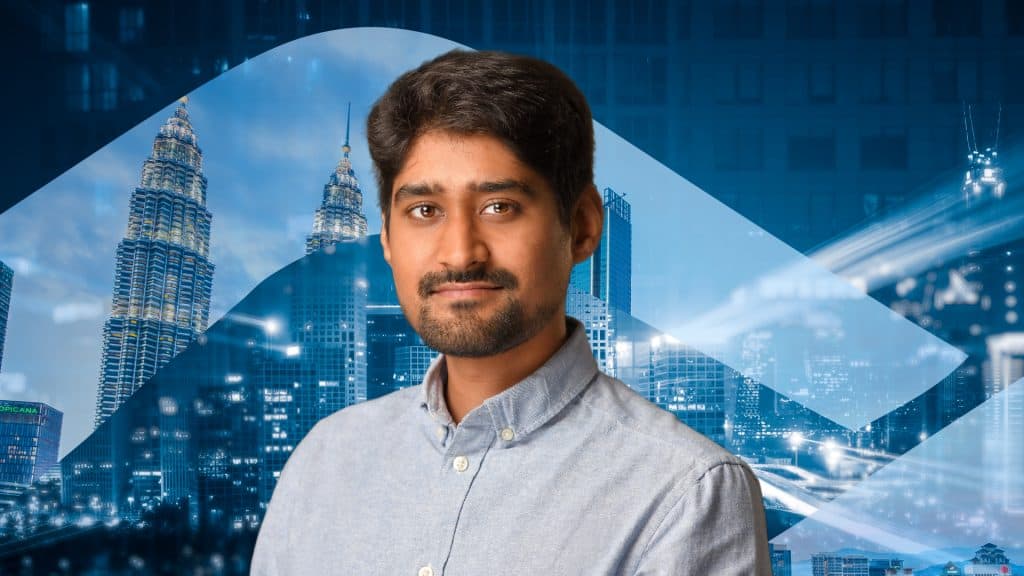
Prior to VC, I was working in investment banking for about six years. One day on my way to work, Uber had just launched in Malaysia, so I booked my first Uber ride to the office. I enjoyed the experience overall, and whilst in the car I realised how powerful the smartphone was. I didn’t think something like this would be possible before. Then I started really doing some work around startups and venture funding, until the end of 2015 when I decided I was going to leave banking and start from ground zero in VC. That’s when I joined MAVCAP and got to know Gobi as a GP, then later officially joined Gobi in 2017.
When we first started looking into Pakistan, I was still trying to find my way within Gobi. We were thinking of other markets under our TaqwaTech framework trying to find the next Muslim economy for Gobi to look into, and Pakistan came up (“TaqwaTech”, is a term coined by Co-Founder of Gobi Partners Thomas G. Tsao, as a framework to empower Muslim founders and economies). I was younger at the time and I was pretty excited to go out into the world and discover things on my own, so I asked Tom if I could make a trip to Pakistan to conduct our initial market research. It was easy for me to connect with the country because my grandparents are Pakistani and I visited as a kid, so it felt like a natural fit for me.
I also felt like for my own growth as a VC investor this experience was important for me, to see an ecosystem grow from zero. We were early believers, the first foreign firm to set up on the ground, and the only GP that has the unique advantage of having both foreign and local partners.
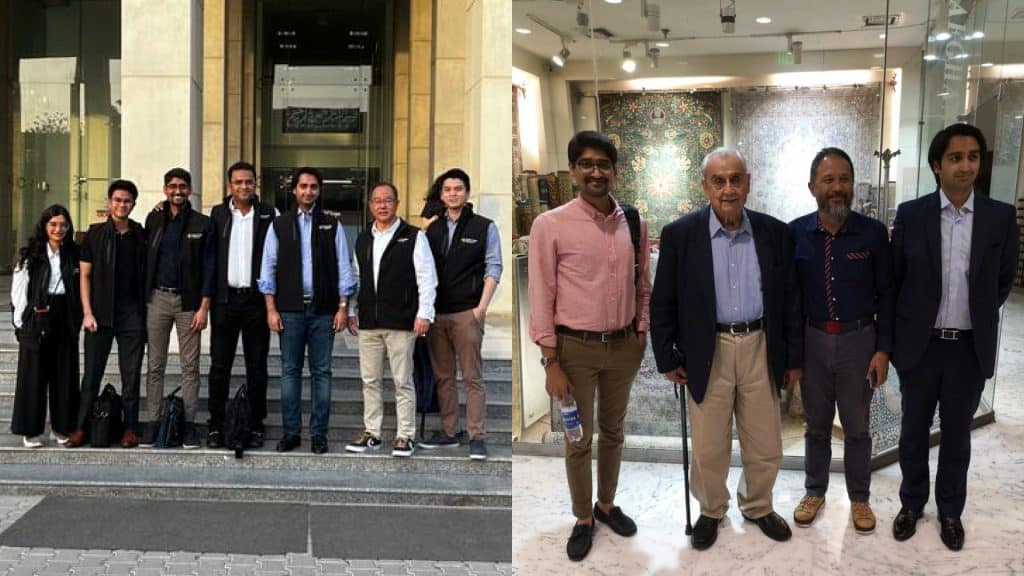
I made my first trip in 2018. Even though I’ve visited from time to time as a kid, I had some family members saying I shouldn’t go, that it’s a dangerous country. There’s always this negative perception about Pakistan.
Upon landing, we were there to meet with a specific company and they had arranged travel, airport pick-up, everything. A driver picked me up at the airport and as we drove out of the airport, the driver stopped at the side of the street, and a random guy with a machine gun got in the car and sat in front. For the first ten seconds when he got in the car, I thought my life was over. But after a few seconds passed, I realised this is the bodyguard that is escorting me to my hotel when he turned to me and smiled. That said, these days bodyguards are no longer necessary.
When it comes to Pakistan, people who have not been there before tend to think of all the negative things you see on the news. But I think when you get on the ground and have your own experience with the country you’ll find that it’s quite safe.
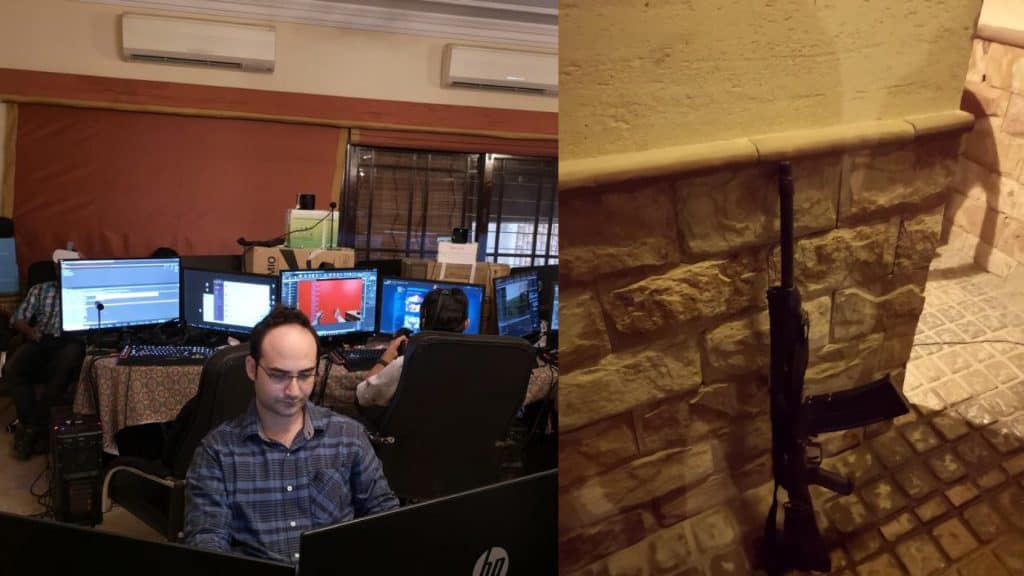
While we had identified TaqwaTech as a market with massive growth potential, the growth in the Pakistan ecosystem exceeded all of our expectations. A notable thing about Pakistan is that despite it having a late start, it has been able to catch up with other emerging markets that had earlier starts. While there are many reasons contributing to this, I think the main few that we have identified or witnessed are (1) the impacts of the pandemic, (2) the local policymakers in Pakistan, (3) the size of their middle-class population, and (4) the massive tech talent pool in the country.
The data that came up during our research while we had just set our sights on Pakistan suggested there would be opportunities for digitised businesses in this massive, young population. This became evident if you consider the rapid increase of 3G and 4G connectivity in the country; from 60-70 million when we first entered this market, and today it has increased to over 100 million just over the span of 2-3 years. This explosive growth was in part due to the pandemic, which sets up a foundation for digitised businesses to thrive.
One particularly successful sector in Pakistan is digital banking because the local policymakers are extremely proactive and move quickly to accelerate these areas as they have seen case studies of other similar markets and the regulators have learned to move faster in creating an environment where not only can VC funding and startups thrive, but also opened up a lot of opportunities for FinTech as a whole.
All of these reasons coming together have allowed Pakistan to grow as quickly as it is right now.
Personally, I’m a skeptic. And this is a weird trait to have in the VC space where we are always taking risks. But I think as an investor, always anticipating that something could go wrong and being somewhat cautious is good. It keeps you on your toes instead of getting too comfortable.
We don’t invest in founders we don’t believe in. Regardless of the hype or buzz around the business or founder. I have always taken a founder-driven approach. Before we get into what you do or what your numbers are, tell me about yourself.
Part of this rule we had to break during the pandemic is meeting founders face-to-face before making an investment. I find that body language is a key thing we should evaluate when we’re having these initial conversations. As a general rule, we always make sure we have full conviction in the founders that we are going to back before investing.
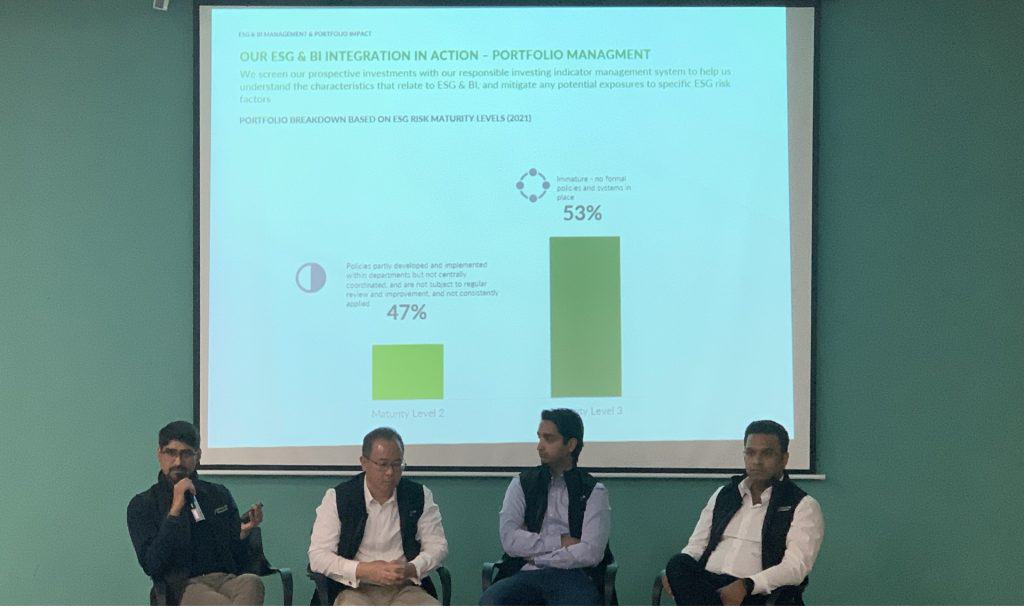
Founders with massive egos. I think the best founders, regardless of their early successes, remain humble. They never think they’ve achieved or reached a certain level that is enough, they always want to do more and think about what’s next, and how they can do better. They have an appetite to continue learning from others.
I am looking forward to building a team on the ground. We are quite top-heavy right now, with most partners and senior management. I’m excited to onboard some more junior talent, and I am looking forward to training the new generation to become potential future partners.
The best city is definitely Lahore. It reminds me of home, here in Kuala Lumpur (KL). It’s very green and the climate is similar to Malaysia’s. I also enjoy visiting Pakistan because I find that their hospitality in a corporate setting is probably one of the best in the world.
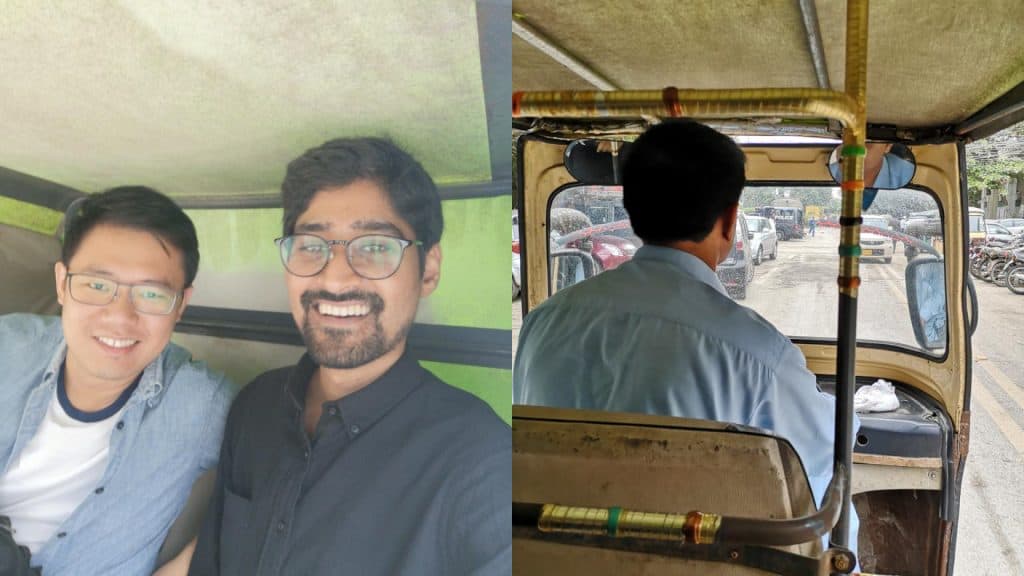
We dealt with a company that got angry because we didn’t buy into their mission and because we didn’t think they had a sustainable model. They got frustrated with me and said, “You know what, you’re not a member of the investment committee (IC). You’re not important. Let me speak to someone on the IC.” I said sure and sent the IC members’ emails over. They spoke to the IC members and as expected, they shared my view.
I’ve noticed in Pakistan, that if you’re early in the ecosystem, there’s a lot of “FOMO” (Fear of Missing Out) or buzz around deals. Because there’s so much “FOMO”, it becomes a founder’s market. The one thing I finally formed an opinion about is to not buy into the “FOMO”. Listen to your gut instead. If something doesn’t sit right—even if you don’t have the means to identify what exactly it is at the time—the answer is always to pause and re-evaluate, or even walk away instead of jumping in.
It’s a flat structure, so you have direct access to mentors and senior management. It’s also a friendly culture with a lot of young people all striving to leverage the platform as much as possible to build something meaningful. It’s also an easy place to work. When I worked in investment banking, there was a concept called “face time” where if your boss is in the office, your face needs to be visible to them. Only when they leave, you can call it a day. Here, as long as you are continuously adding value, these things are not micromanaged.
A pilot. Which is weird as I hate flying. (Laughs)
“It’s always a yes until it’s a no.” This is from Tom (Thomas G. Tsao, Founding Partner of Gobi). Keep working towards something, and never say no too prematurely.
My family and my wife. I think like anyone else tends to do. And my dog, Jelly. I don’t pay enough attention to him these days.
It has made me more adaptable, patient, and inspired a lot of creativity—both in the new ways that we work and in how we are entertaining ourselves, and keeping ourselves and loved ones sane while we are cooped up at home with nowhere to go.
My luck, if that makes sense. My life and its transitions have gone quite smoothly and I’m very grateful. Sometimes when I find myself complaining, especially during my travels when I am reminded of another side of people’s hardships, I remind myself how fortunate I am to be in my position and I try to not take it for granted.
How lame I am now. I used to be a lot of fun in my twenties. I would probably look at myself and think, what a lame old guy. (Laughs)
It’s simple. Happiness.
(1) No more five-day work weeks. There should be four day work weeks (2) Healthcare and education should be free (3) The flow of money in politics should be done on a blockchain so there is accountability and transparency.